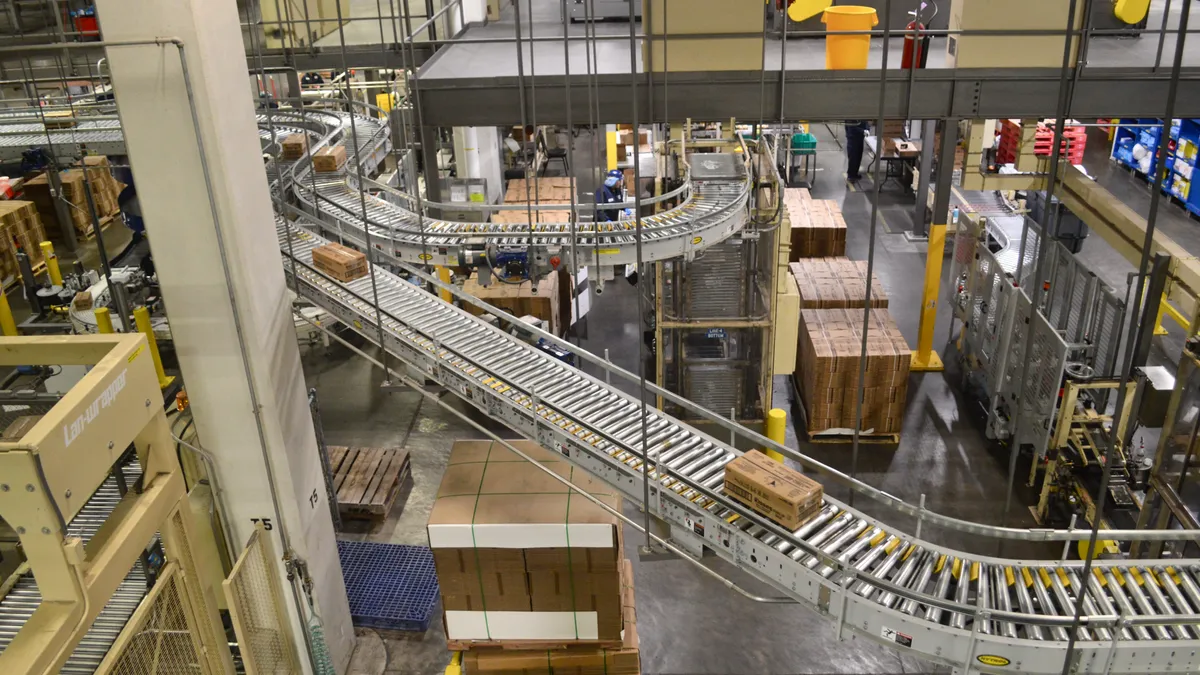Dive Brief:
- A new Connecticut training facility will soon be tasked with preparing local high school students to take on careers involving advanced manufacturing techniques — from reading blueprints to working with automated numerical control machines — the Associated Press reports.
- The opening of the $1.2 million Advanced Manufacturing Teaching Center is the result of a collaboration between educational institutions in the state, including Asnuntuck Community College and Housatonic Community College, and state government officials, according to AP. The facility is located in the basement of Derby High School, AP said, and includes heavy tools such as lathes, drills and saws as well as more advanced machinery.
- The center will also host evening classes for adult learners, local ABC affiliate WTNH reported. The Connecticut State Colleges and Universities previously announced an initiative to prepare for a stated demand of 35,000 skilled workers by the state's manufacturers.
Dive Insight:
Manufacturing employs well over 12 million U.S. workers, according to data from the U.S. Bureau of Labor Statistics, representing a large chunk of the country's nearly 151 million nonfarm workers. Observers have long noted the potential for massive automation in the space; a 2017 McKinsey report, for example, calculated automation could supplant as many as 76% of food manufacturing jobs and 69% of beverage manufacturing jobs.
Yet the industry's top lobby, the National Association of Manufacturers (NAM), isn't publicly worried about the job replacement narrative. NAM president and CEO Jay Timmons has instead chosen to highlight the industry's need for more than 400,000 workers, with many of those unfilled roles being skilled positions ranging from production workers to software engineers. Both NAM and researchers from ManpowerGroup have pointed to the skills gap as a culprit for unfilled employer demand. According to a 2019 ManpowerGroup report, 25% of employers in production and manufacturing said they would employ more people over the next year.
A few moves signal that top manufacturing companies are considering advanced manufacturing as a potential way forward. Stanley Black & Decker announced in April plans for a "smart factory" facility — in Connecticut, no less — as part of a larger initiative to upskill workers and highlight opportunities for them to work alongside machines. Market research consultancy ABI Research, in one of its surveys from a 2018 report, found that 74% were evaluating, investigating or planning to leverage "internet of things" devices in the context of their operations. Another 47% in the same survey had either deployed or were in review of robotics.
Connecticut schools aren't the first to develop initiatives to prepare students for the workforce. Colleges and universities in Alabama have partnered with auto manufacturers Toyota and Mazda on training and recruiting for one of the state's plants. Oregon high schools have taken a similar approach to technology jobs. But manufacturers are also realizing they need to change the popular image of what manufacturing jobs look like in order to open the field to diverse, skilled talent. Timmons, at a 2018 NAM board meeting, acknowledged the need for industry employers to embrace diversity and take action to prevent sexual harassment.














![Salesforce AI's CEO sits onstage across from Cristina Criddle. Screens that say Human[X] hang behind them.](https://imgproxy.divecdn.com/4XVfO8mNsslv7_axsVip9IU74iKpLWgiY3616VXH4ow/g:nowe:0:104/c:1024:578/rs:fill:600:338:1/Z3M6Ly9kaXZlc2l0ZS1zdG9yYWdlL2RpdmVpbWFnZS9HZXR0eUltYWdlcy0yMjA0NjUxNDM0LmpwZw==.webp)